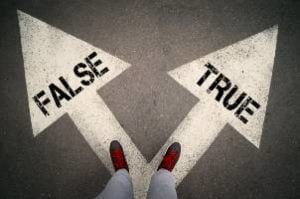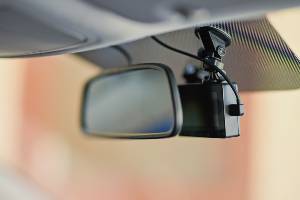What Should You Do if the At-Fault Driver Lies About the Car Crash?
 The aftermath of a car crash is difficult enough. If the at-fault driver lies about his or her role in the situation, it puts up another obstacle to recovering compensation for your damages. Even if the at-fault driver’s statements are untrue, they give the insurance company more reason to question your account of the crash.
The aftermath of a car crash is difficult enough. If the at-fault driver lies about his or her role in the situation, it puts up another obstacle to recovering compensation for your damages. Even if the at-fault driver’s statements are untrue, they give the insurance company more reason to question your account of the crash.
If you think the at-fault driver is lying or exaggerating, it is important to contact an experienced attorney right away. You need a lawyer who has been through this process many times, who knows how to build a strong case and will pursue full compensation.
The Bloomington-based car accident attorneys at TSR Injury Law have secured compensation for many vehicle crash victims. We know how to investigate and gather evidence about the crash and determine the value of your damages.
Is the at-fault driver lying? Call TSR today: (612) TSR-TIME.
Why Some At-Fault Drivers Decide to Lie
Drivers who cause car crashes have an incentive to lie about what happened. If a driver caused a crash, the victim may be able to seek compensation from the driver’s liability insurance. Claims filed against that at-fault driver’s insurance policy could cause his or her insurance premiums to go up.
Drivers may also want to avoid a traffic citation, especially if they have received multiple traffic citations in a short period of time. The driver may be concerned about a license suspension, which can happen if you receive enough moving violations over a certain period.
Sometimes drivers lie because they have been drinking alcohol or are under the influence of drugs. They do not want to face the consequences of a DWI conviction.
Lies At-Fault Drivers May Tell
The driver who caused your crash might lie about a variety of things. For example, the driver may lie and say he or she was not speeding or texting and driving. While the victim may have suspicions that the at-fault driver was speeding or distracted, the at-fault driver may think there is no way you can prove it.
Drivers often lie about whether they were drinking. They do this because there are severe legal consequences for those who are convicted of drinking and driving.
Drivers may also lie about being fatigued or nodding off at the wheel. However, you may have noticed that driver having trouble staying in his or her own lane of traffic. You may even see the other driver yawning when he or she gets out of the car after the crash. Despite it being obvious the other driver is tired, he or she may lie about it.
Some of the other things drivers may lie about include:
- Tailgating/following you too closely before the crash
- Running a stop sign
- Running a red light
- Mechanical issues in the vehicle that helped contribute to the crash, such as a recalled part
How Do You Prove Your Account of the Crash?
There is no need to confront the other driver about his or her lies. You do not want to get into a shouting match or physical confrontation with the other driver. The important thing is to present your side of the story and hire an attorney to take on the insurance company on your behalf.
Tell the Police Officer What Happened
When the police arrive at the scene, you can explain what you remember about the crash and the officer will note your statement in the police report. The report may also include the officer’s thoughts on fault for the crash. If the at-fault driver lies to the officer, he or she may be able to spot the lie. Police officers deal with drivers and others who give untrue statements on a regular basis, so they are skilled at spotting lies.
If you think the other driver is under the influence of drugs or alcohol, there is a good chance the officer will figure it out. Driving drunk is illegal and carries severe penalties, so if the officer thinks the other driver may be drunk, the officer may conduct a field sobriety test or breathalyzer test.
Correct Errors on the Police Report
When you or your lawyer obtain a copy of the police report, it is important to make sure the information on it is correct. If there are errors, talk to your lawyer about getting them corrected as quickly as possible. Sometimes correcting an error is as simple as talking to the officer on the phone. However, if it is more complicated, you may need an experienced lawyer to help you get the error removed.
Gather Witness Statements
If there are witnesses to the crash and their statements back up your account of the crash, it is much less likely the at-fault driver’s lies will hold up under scrutiny.
The responding police officer will talk to witnesses. You can also get their contact information and give it to your attorney so he or she can contact them later.
Taking Pictures at the Scene
If you are physically able to do so, you can take pictures of visible injuries and damage to your vehicle. You can also photograph the location of the crash (road signs, landmarks, etc.) and debris or damage to the road (skid marks, broken glass, vehicle parts, etc.).
Staying Consistent
Your actions after the crash can help bolster your credibility. If you are more credible than the other driver, it will be harder for his or her lies to hold up over time. Drivers who lie about a traffic crash will have difficulty remembering what they said and making consistent statements about what happened.
If you want to ensure consistent statements, it is best to stick to the truth and limit what you say about the crash. Tell the responding officer what happened but avoid talking to the insurance company, or at least limit what you say to the insurance company.
Insurance companies know how to trick victims into saying things that could hurt their claims. Insurers may also want to keep you talking. The longer you talk with them, the more likely it is you will say something that you might contradict later.
It is generally best to let your attorney deal with the insurance company. At TSR, we know how to do this because we have been doing it for decades. We know how to build strong cases, as you can see from our proven history of success. We have secured $1 billion in compensation for our clients.
Give Us a Call. We Are Ready to Help
Insurance companies are ready to fight hard to avoid paying full compensation for damages suffered by car crash victims. You need an experienced advocate who has the resources and legal knowledge to fight just as hard for your interests.
TSR Injury Law works on contingency, which means the initial consultation is free. There are no upfront fees to pay before we take your case. Our attorneys do not get paid unless you get paid.
Call today to discuss how we can help: (612) TSR-TIME.


 TSR Injury Law was the 2022 Regional Title Sponsor of
TSR Injury Law was the 2022 Regional Title Sponsor of  While there are personal injury cases that end up in court, most reach a resolution after the victim and the liable insurance company agree on a settlement. Sometimes victims deal with the insurance company themselves, but if you hire an attorney, he or she is going to send a settlement demand letter to the insurance company.
While there are personal injury cases that end up in court, most reach a resolution after the victim and the liable insurance company agree on a settlement. Sometimes victims deal with the insurance company themselves, but if you hire an attorney, he or she is going to send a settlement demand letter to the insurance company. One of the last things an injury victim wants to hear an attorney say is that there is no case. Injury victims need compensation for medical expenses and other damages. If an attorney tells them they do not have a case, they may think they cannot pursue the compensation they need.
One of the last things an injury victim wants to hear an attorney say is that there is no case. Injury victims need compensation for medical expenses and other damages. If an attorney tells them they do not have a case, they may think they cannot pursue the compensation they need. At-fault drivers and their insurance companies often dispute liability for a crash. When these disputes come up, the victim’s lawyer may need additional evidence to help prove the claim. For example, footage from a dashboard camera in one of the vehicles involved in the crash, or the vehicle of an eyewitness, may be useful.
At-fault drivers and their insurance companies often dispute liability for a crash. When these disputes come up, the victim’s lawyer may need additional evidence to help prove the claim. For example, footage from a dashboard camera in one of the vehicles involved in the crash, or the vehicle of an eyewitness, may be useful.